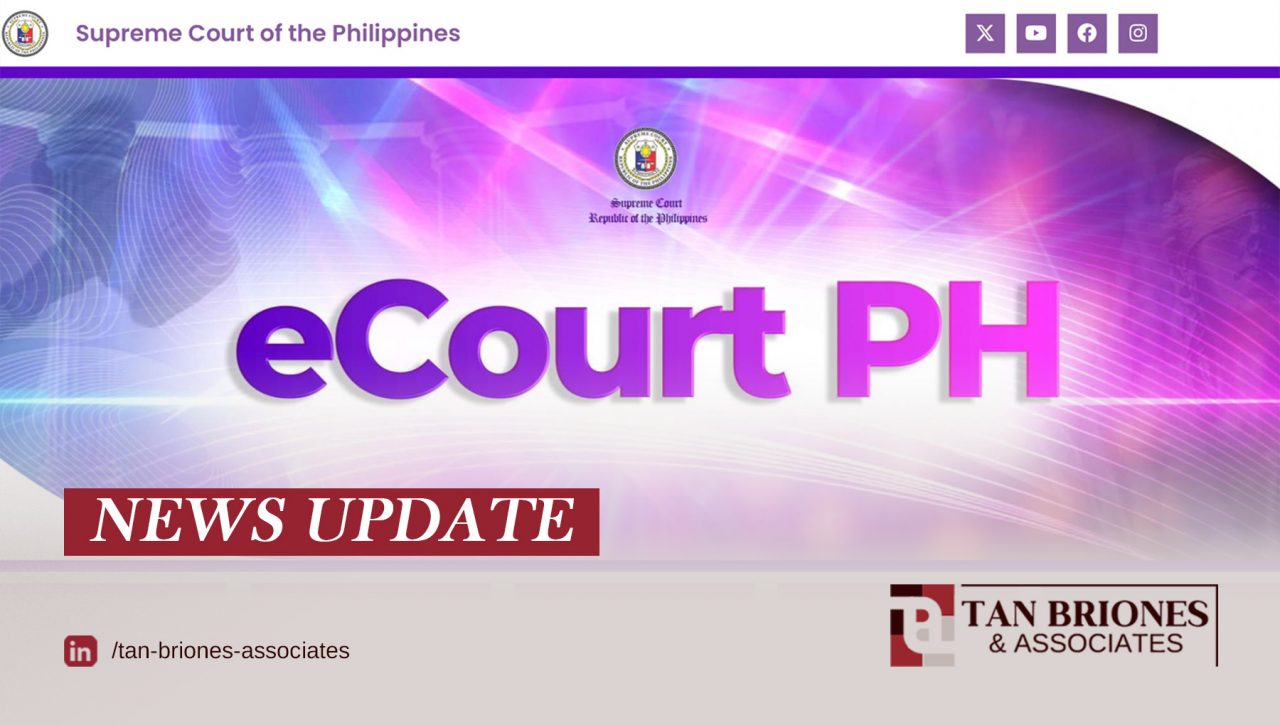
The Supreme Court (SC) will begin requiring electronic filing of select pleadings through the Philippine Judiciary Platform starting July 1, 2025, as part of its shift to digital processes.
Under A.M. No. 25-05-16-SC, or the Guidelines on Transition to Electronic Filing in the Supreme Court, the SC En Banc approved on May 20 a transition period from July 1 to September 30, during which lawyers must file both digital and paper copies of select initiatory pleadings and motions for extension of time via the eCourt PH app on the PJP portal (https://portal.judiciary.gov.ph).
The covered pleadings include petitions for review on certiorari under Rule 45; reviews of decisions by the Commission on Elections and Commission on Audit under Rule 64; petitions for certiorari, prohibition, or mandamus under Rule 65; petitions for contempt; applications for prerogative writs such as habeas corpus, amparo, and kalikasan; and quo warranto petitions.
Subsequent pleadings in these cases due from July 1 onward must also be e-filed, while electronic filing and service through the PJP will become mandatory for lawyers handling such cases by October 1, 2025.
According to the SC, documents submitted through a registered account will be deemed filed by the account holder, regardless of the signatory, and using another lawyer’s account is strictly prohibited and subject to disciplinary action.
Filings submitted before July 1 in accordance with the Rules of Court do not need to be refiled unless ordered by the SC, and their original filing dates will be recognized.
During the transition period, the Court may allow corrections to erroneous filings, but starting October 1, improperly filed pleadings may be dismissed or denied, and later improper filings will be considered as not filed.
Excluded from the eFiling requirement are criminal appeals under Rule 122, administrative complaints involving Supreme Court personnel, matters concerning the Court of Appeals, Sandiganbayan, Court of Tax Appeals, and electoral tribunals, among others.
Meanwhile, parties not represented by lawyers—including law student practitioners, Shari’ah counselors not admitted to the Philippine Bar, and amicus curiae—must continue filing manually.
The shift to eFiling is part of the Strategic Plan for Judicial Innovations 2022–2027, under which the eCourt PH system was developed to digitalize court processes, including submission of pleadings.
To access the complete resolution under A.M. No. 25-05-16-SC, visit: https://sc.judiciary.gov.ph/wp-content/uploads/2025/06/25-05-16-SC.pdf.
Follow Tan Briones & Associates on LinkedIn for more legal updates and law-related articles.







